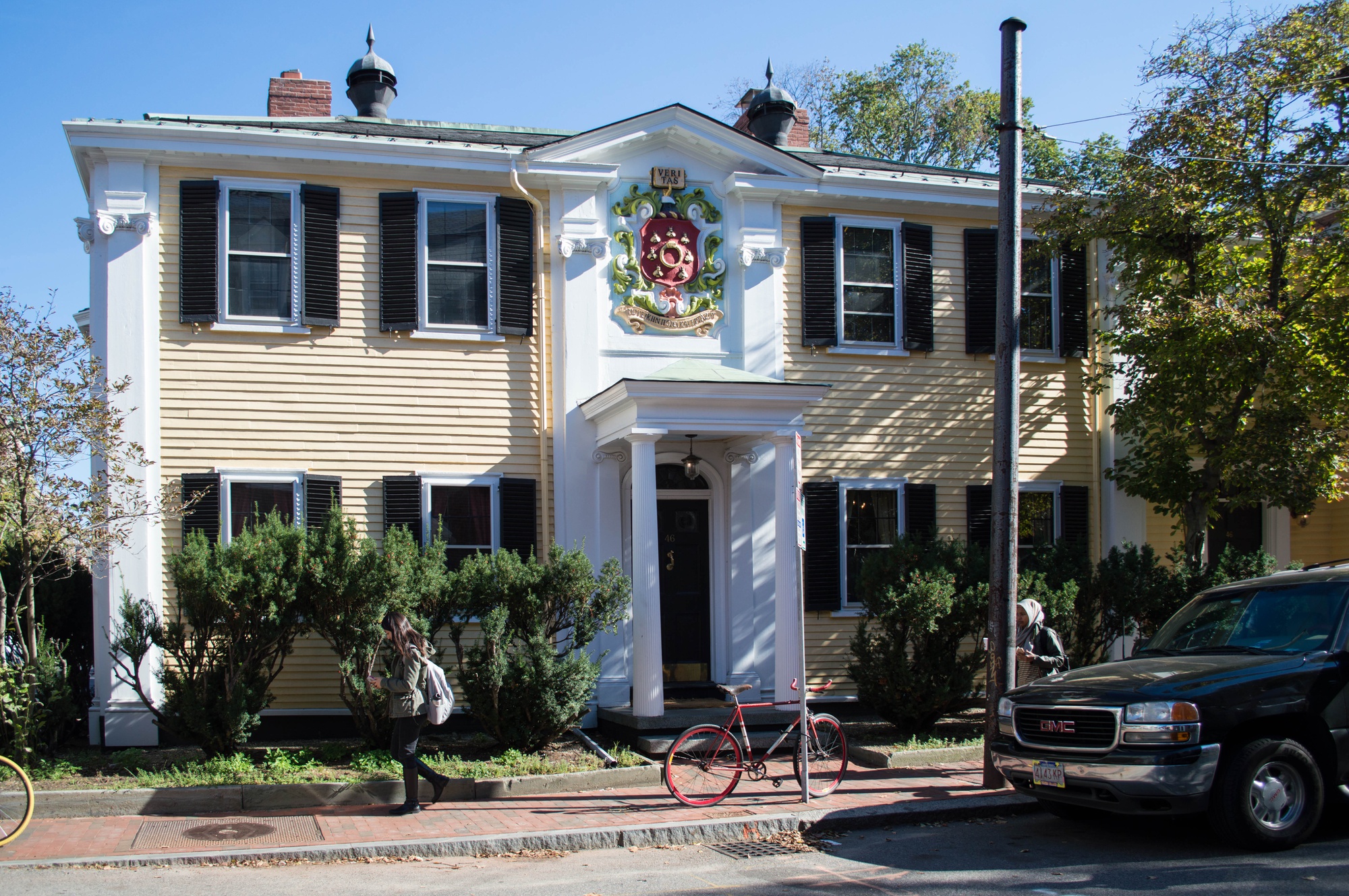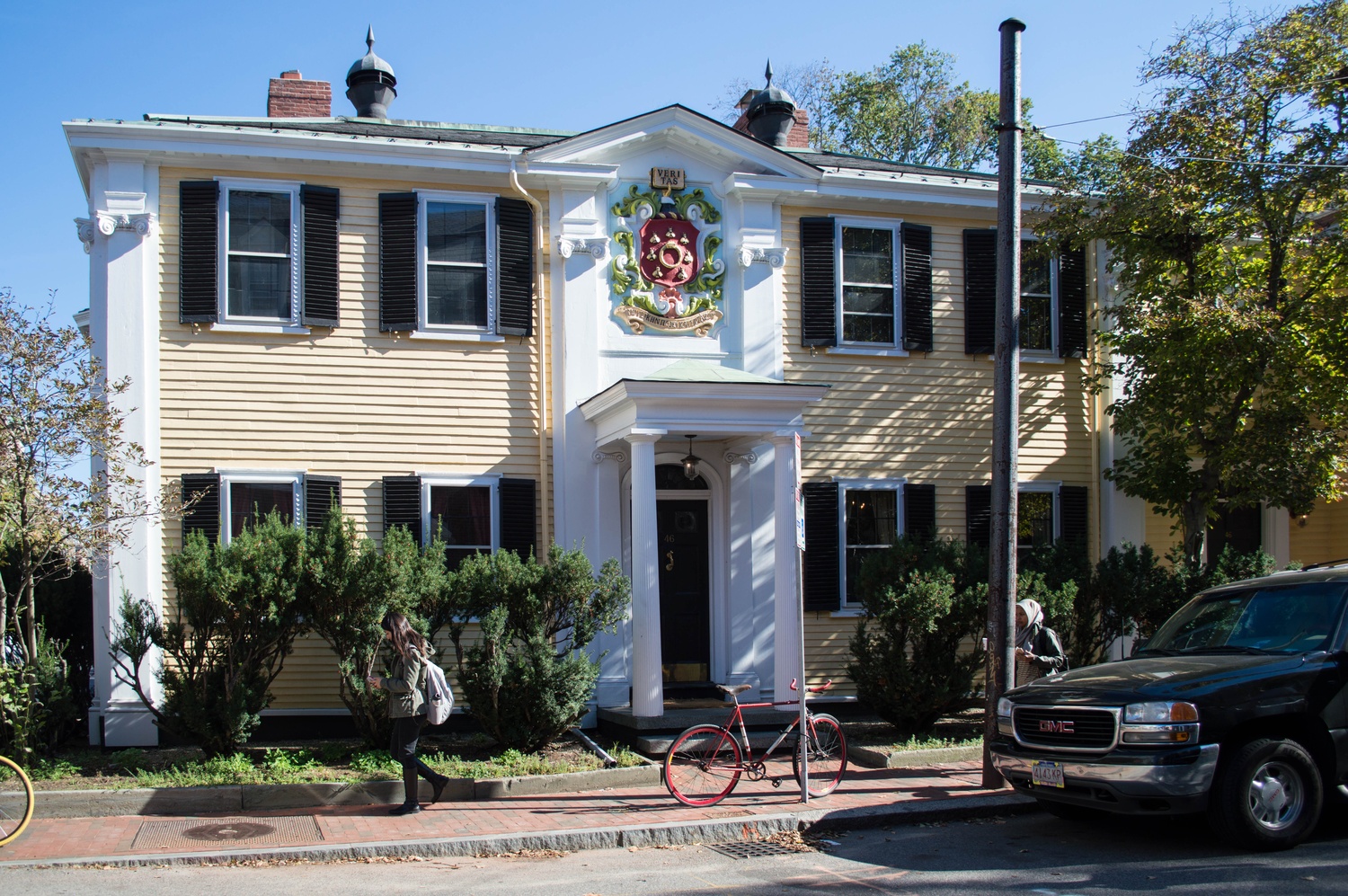
News
Summers Will Not Finish Semester of Teaching as Harvard Investigates Epstein Ties

News
Harvard College Students Report Favoring Divestment from Israel in HUA Survey

News
‘He Should Resign’: Harvard Undergrads Take Hard Line Against Summers Over Epstein Scandal

News
Harvard To Launch New Investigation Into Epstein’s Ties to Summers, Other University Affiliates

News
Harvard Students To Vote on Divestment From Israel in Inaugural HUA Election Survey
Signet Picks Members After Open Application

UPDATED: October 9, 2015, at 2:52 a.m.
The Signet Society, an off-campus social club primarily composed of members of Harvard’s arts community, moved to an open-application process earlier this semester following internal membership calls for diversity and inclusivity.
The co-ed club, which was founded in 1870, elected new members using the open process this month. Out of around 90 applicants, 17 new members were elected, according to Daniel A. Citron ’16, the Signet’s president. The club’s yellow-tinted Mount Auburn Street house, nicknamed the “Beehive,” hosts weekly lunches and socials to “celebrate the arts and letters,” according to its website, and also serves as a social space.

Traditionally, current members of the Signet have “put-up,” or nominated, one to two of their peers for admission. But beginning last spring, Signet members began questioning the ability of this process to properly represent the Harvard arts community.
“At the beginning of last semester, when the list of ‘put-ups’ came out, I brought up to the membership that we didn’t have that many people of color on our ‘put-up’ list, and that I thought it was an issue we should address,” said Reylon A. Yount ’16, a member of the Signet.
Members also considered the club’s reach within the campus arts community. According to Maya M. Park ’16, the Signet’s vice president and a Crimson Fifteen Minutes writer, the nature of the traditional nomination process favored those who were in campus arts organizations, like the Harvard Advocate and Harvard Lampoon, and excluded artists in less established communities.
“It makes it no longer about the arts, but instead about who you know and whether you’re in the established communities,” Citron said of the ‘put-up’ system.
After these concerns were raised, board members organized membership-wide discussions over the efficacy of the club's admissions procedures. From those conversations came the idea of an open application.
“We felt that over conversations about diversity, access, exclusivity, and safety we recognized that in a way the Signet represented the things that made people hurt,” Park said.
According to Park, the number of first-round applicants this year exceeded traditional levels. The process still includes one round of cuts, followed by a round of voting by members to decide final membership.
Current board members emphasized that the shift is a work in progress, and according to Park, this alteration is only one step in an incomplete process of future changes.
“We are undertaking something that is very large, which is trying to make a space that was traditionally one of Harvard’s exclusive spaces something that is more open, accepting, and not only for a specific group of arts students,” Citron said.
—Staff writer R. Blake Paterson can be reached at blake.paterson@thecrimson.com. Follow him on Twitter @BlakePat95.
Want to keep up with breaking news? Subscribe to our email newsletter.
